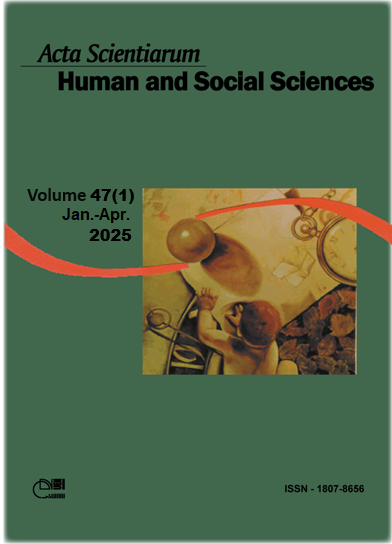Emancipation or compensation? A marxist analysis of social public policies
Abstract
The objective of this article is to discuss the dynamics that public policies assume in mediating conflicts of interest between social classes in capitalism. Public policies are actions of the State that seek to solve problems that limit the development of capitalist society. The State holds the prerogative to act or not to act in solving problems. In this sense, would the State have the capacity to emancipate or merely to appease social struggles for emancipation? The methodology used was a theoretical debate based on bibliographic references based on historical and dialectical materialism from different Marxist currents, but which has Marx as its methodological magnifying glass to interpret the State. Therefore, we bring as a central reflection the possibility of public policies being instruments for maintaining the hegemonic order of capitalism, but they can also assume the perspective of responding to class struggles embodied in rights and guarantees.
Downloads
References
Behring, E. R., & Boschetti, I. (2010). Política social: fundamentos e história. Cortez.
Brasil. (1988). Constituição da República Federativa do Brasil de 1988. http://www.planalto.gov.br/ccivil_03/constituicao/constituicao.htm.
Dias, R., & Matos, F. (2017). Políticas públicas: princípios, propósitos e processos. Atlas.
Dye, T. R. (1972). Understanding public policy. Prentice-Hall.
Engels, F. (2010). A situação da classe trabalhadora na Europa. Boitempo.
Engels, F. (2019). A origem da família, da propriedade privada e do Estado. Boitempo.
Ferraz, D. L., & Chaves, R. H. (2021). Notas sobre o serviço público: as disputas capital-trabalho pela apropriação do erário do Estado burguês. In C. Martins, F. Batista, & G. Seferiam (Orgs.), Comuna de Paris, estado e direito (pp. 371-398). RTM.
Gramsci, A. (2014). Quaderni del carcere (Vol. 1). Einaudi.
Gough, I. (1982). Economía política del Estado del bienestar. H. Blume Ediciones.
Iamamoto, M., & Carvalho, R. (1995). Relações sociais e serviço social no Brasil: esboço de uma interpretação histórico-metodológica. Cortez/Celats.
Lenin, V. I. (2017). O Estado e a revolução: a doutrina do marxismo sobre o Estado e as tarefas do proletariado na revolução. Boitempo.
Luxemburgo, R. (2011a). Reforma ou revolução? In I. Loureiro (Org.), Rosa Luxemburgo: textos escolhidos (Vol. 1, pp. 01-112). Unesp.
Luxemburgo, R. (2011b). O que queremos? In I. Loureiro (Org.), Rosa Luxemburgo: textos escolhidos (Vol. 1, pp. 207-262). Unesp.
Marx, K. (2013). Crítica à filosofia do direito de Hegel. Boitempo.
Marx, K. (2017). O capital: crítica da economia política, Livro 1. O processo de produção do capital. Boitempo.
Marx, K., & Engels, F. (2010). Manifesto comunista. Boitempo.
Mascaro, A. L. (2013). Estado e forma política. Boitempo.
Mészáros, I. (2008). Filosofia, ideologia e ciência social: ensaios de negação e afirmação. Boitempo.
Mota, A. E. M. (2017). A regressão civilizatória e as expropriações de direitos e das políticas sociais. Argum, 9(3), 30-36. http://dx.doi.org/10.18315/argumentum.v9i3.18217
Pereira, P. A. P. (2009). Política social: temas & questões. Cortez.
Secchi, L. (2017). Políticas públicas: conceitos, esquemas de análise, casos práticos. Cengage Learning.
Tonet, I., & Nascimento, A. (2009). Descaminhos da esquerda: da centralidade do trabalho à centralidade da política. Editora Alfa-Omega LTDA.
Copyright (c) 2025 Edir Henig

This work is licensed under a Creative Commons Attribution 4.0 International License.
DECLARATION OF ORIGINALITY AND COPYRIGHTS
I Declare that current article is original and has not been submitted for publication, in part or in whole, to any other national or international journal.
The copyrights belong exclusively to the authors. Published content is licensed under Creative Commons Attribution 4.0 (CC BY 4.0) guidelines, which allows sharing (copy and distribution of the material in any medium or format) and adaptation (remix, transform, and build upon the material) for any purpose, even commercially, under the terms of attribution.
Read this link for further information on how to use CC BY 4.0 properly.
























